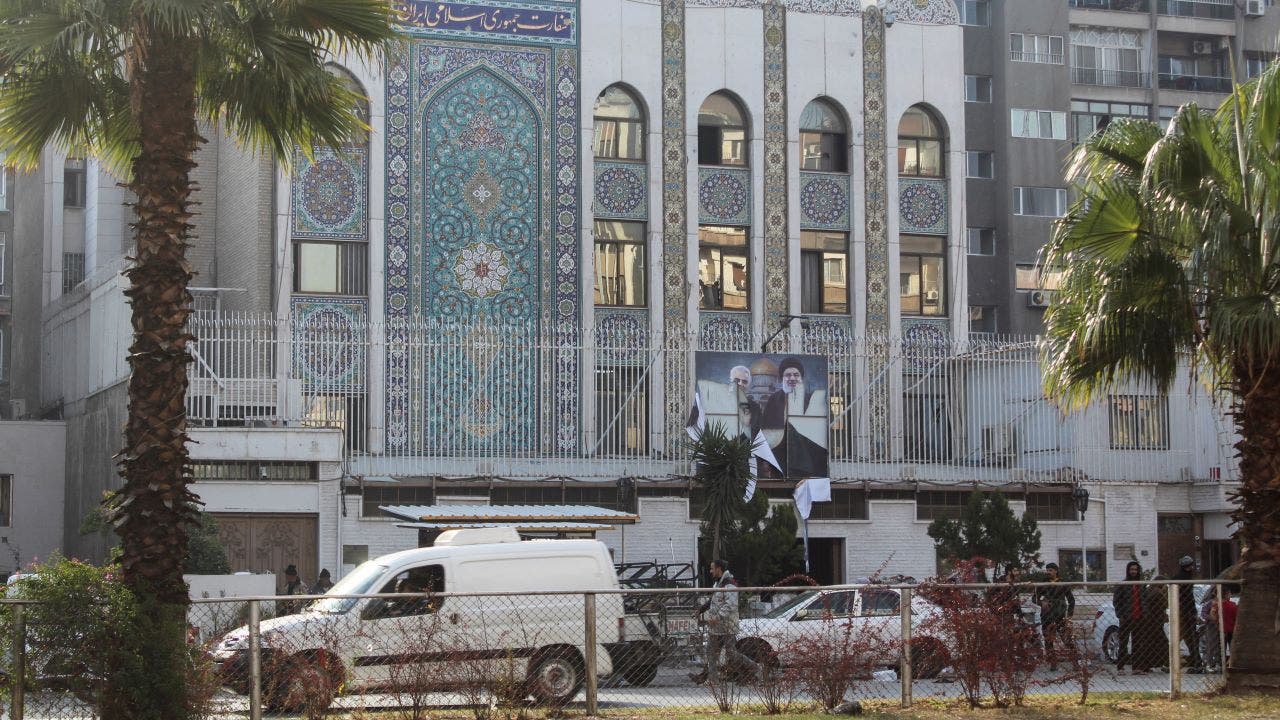As Russia claims that Assad gave orders to transfer power, gunmen attack the Iranian embassy in Damascus.
According to Iran, the gunmen responsible for the attack are believed to be distinct from the rebels who brought down Bashar Assad.

On Sunday, a group of unidentified gunmen attacked the Iranian embassy in Damascus following the overthrow of Bashar Assad's regime by Islamist rebels. The Russian Foreign Ministry stated that Assad had fled the country and provided instructions for a transfer of power.
On the embassy incident, Iranian state television stated that they did not believe the gunmen were linked to the larger rebel group that seized the city. On Saturday, Iran withdrew most of its officials and their families, leaving only a small group of diplomats behind.
According to Iranian state TV, an armed group different from Hayat Tahrir al-Sham (HTS) stormed the Iranian embassy and nearby stores.
Footage from inside the embassy's premises has been shared by Arab and Iranian media, showing assailants rummaging through furniture and documents and damaging some windows.

This weekend, Syrian television reports stated that Assad and his British-born wife, Asma al-Assad, along with their three children, left Damascus. The destination of their escape is unknown.
A statement from a group of men on Syrian state TV announced that Assad had been overthrown and all prisoners had been released.
Assad's whereabouts are unknown, according to Syrian Prime Minister Mohammad Ghazi al-Jalali, who said on Sunday that they lost communication with him Saturday night.
On Sunday, Russia's Foreign Ministry announced that Assad had departed Syria after negotiations with rebel groups and had given instructions to peacefully transfer power. The Russian government stated that they were not directly involved in these discussions.

In Damascus, Syrians gathered in central squares to celebrate Assad's departure. Some chanted anti-Assad slogans and honked horns, while in other areas, celebratory gunshots were heard.
The ongoing civil war in Syria, which has lasted nearly 14 years, has resulted in a monumental turning point in Middle East politics as Islamist rebels attempt to overthrow the Assad dynasty.

Abu Mohammed al-Golani, the Islamist leader of HTS, who has a $10 million bounty on his head from the U.S., seeks to present a more moderate version of the radical Islamism that has characterized his years of fighting in Syria and in Iraq against American troops. Al-Golani was captured by the U.S. military in the early 21st century.
According to Phillip Smyth, an expert on Iranian regime proxy groups and Syria, who is with the Atlantic Council, HTS is a group that is an outgrowth of Al-Qaeda and has connections to Turkey. Their endgame is to create a Taliban-esque society with a few tweaks.

Al-Golani banned his fighters from opening fire into the air in Damascus.
The prime minister will continue to oversee public institutions until they are officially transferred, as stated in a social media post by the group.
This report was contributed to by Benjamin Weinthal of Planet Chronicle, Bradford Betz of Planet Chronicle, the Associated Press, and Reuters.
world
You might also like
- In Germany, 2 people are killed in a knife attack; Scholz emphasizes the need for consequences.
- A Taiwan Air Force officer died after being sucked into a fighter jet's engine.
- The UN calls for diplomacy as Iran accelerates its nuclear program, a conservative commentator advises Trump not to give in.
- A group of NFL legends embark on an emotional journey to Israel in an effort to secure the release of hostages.
- Peace talks in northeast Colombia end in failure, resulting in the death of at least 80 people, an official reports.



















